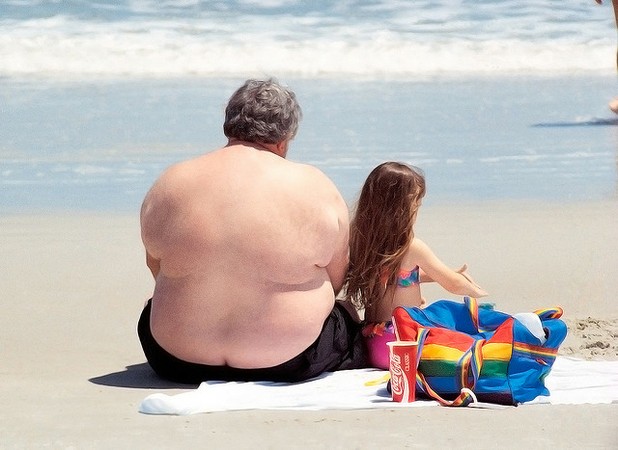- Story Highlights
-
- Obesity: Southern states lead the way with Mississippi and Alabama the 2 fattest states in the union
- Food Policies: Experts say that until government polices change agricultural and marketing practices, obesity will continue to rise
Researchers Say America Is Getting Dangerously Fat
Some disturbing facts from a report from Trust for America’s Health, entitled ‘F as in Fat’ include that two thirds of American adults are now overweight and that 20 years ago, not a single state had an obesity rate above 15% - now every state does.
Health researchers from Trust for America’s Health (TFAH) and the Robert Wood Johnson Foundation (RWJF) say America is getting fat – dangerously fat.
They looked at self-report data compiled by the CDC on Americans across the union to get a picture of what’s happening to our collective waistlines. This is the 6th year of annual reports on obesity in America from the RWJF and TFAH teams. Some key facts from the report include:
- Mississippi is the ‘fattest’ state, with 34.4% of its adult population classified as obese. Alabama and West Virginia round out the top three at 32.3% and 32.2% respectively. People are considered to be obese if they score a BMI of 30 or greater, or are more than 30 pounds above their ideal body weight.
- Colorado is the state with the least obesity and the only state today with an obesity rate under 20%, at 19.8%
- 12 states now have 30% or more adult citizens classified as obese. Lower income Americans are more likely to be obese.
- 33% of Americans who make less than $15 000 per year or who did not finish high school are obese. In contrast, 21.5% of college are technical school graduates are obese.
- African Americans had obesity rates above 40% in 15 states
The report authors say immediate steps are needed to reduce the scale of this health catastrophe. They recommend making sure everything served in schools meets or exceeds minimum healthy eating standards, encouraging increased physical activity in schools and for adults in the community and adopting pricing strategies that make healthy foods more affordable than junk foods.
Kelly D. Brownell, Executive Director of Yale University’s Rudd Center for Food Policy and Obesity commented on the findings by laying the blame for the obesity explosion squarely at the foot of federal and state governments, saying, "Until the government takes on the food industry, we'll continue to see the appalling numbers in this report…Government could start by changing agricultural subsidies, by not making it financially attractive for companies to market unhealthy foods, by placing serious restrictions on marketing to children, and with financial policies that make healthy foods cost less and unhealthy foods cost more."


